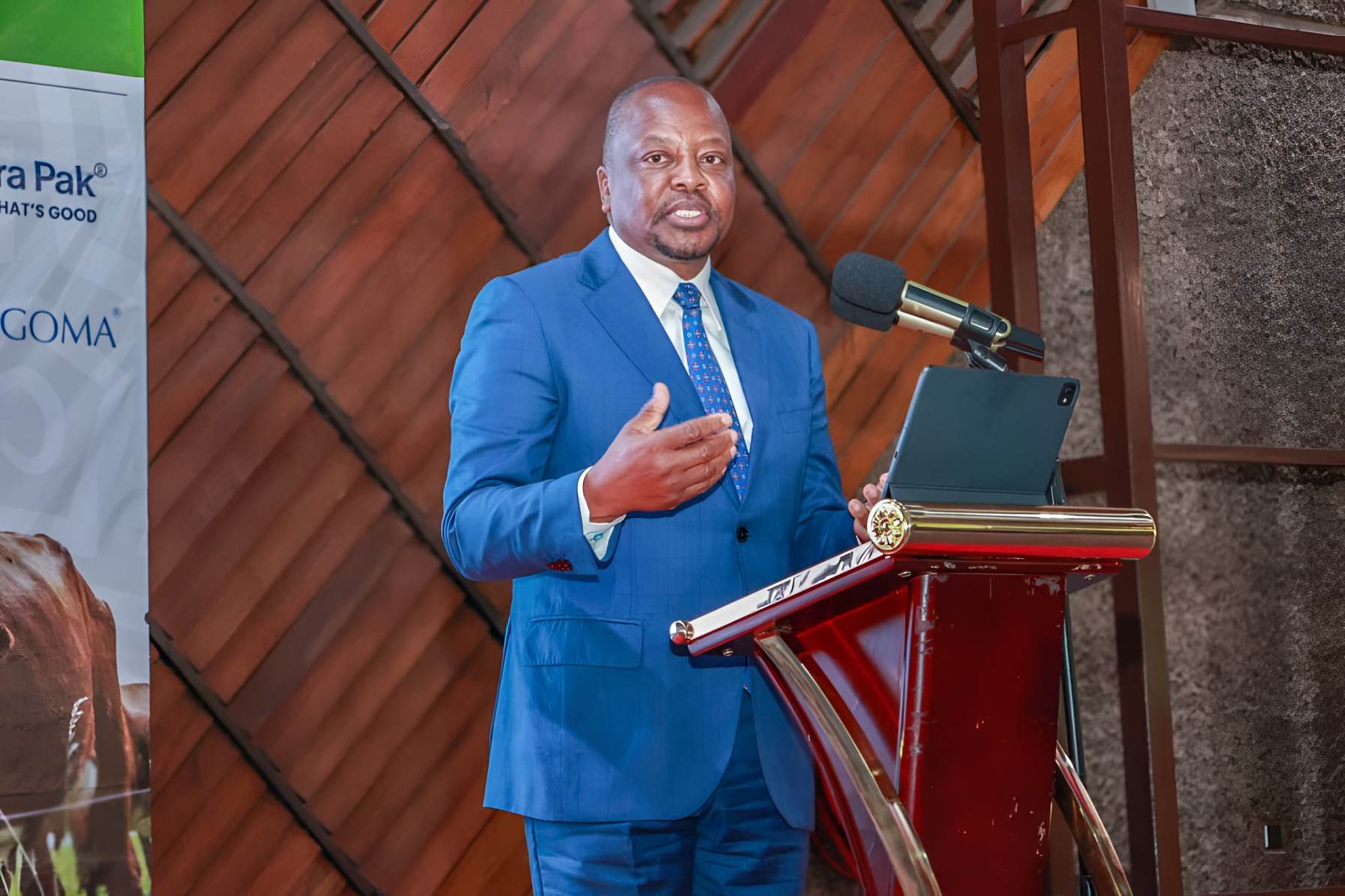Agriculture and Livestock Development Cabinet Secretary Mutahi Kagwe has sounded the alarm over aflatoxin contamination in animal feeds.
Speaking during the opening of the 17th African Dairy Conference and Exhibition (AFDA17) at the Kenyatta International Convention Centre (KICC), Kagwe warned that Kenya’s dairy exports will remain at risk unless the problem is urgently addressed.
He went on to say that contaminated maize feeds are directly undermining Kenya’s efforts to expand its dairy industry.
“No export without quality,” the CS said.
“Aflatoxin in maize feeds passes straight into milk and locks us out of lucrative markets. If we are serious about doubling production and exporting, we must fix feed quality first.”
Kagwe announced that the government is preparing to roll out a Good Quality Milk certification programme.
The initiative, he said, will reward farmers who deliver clean, safe milk with premium prices, while discouraging substandard production.
“We must all produce good quality milk, and the farmer must be recognised for doing the right thing. It cannot be the same amount for bad and good. Those who produce better will earn better,” Kagwe said.
He urged feed manufacturers and farmers to adopt Aflasafe, a biological product that has proven effective in controlling aflatoxin in maize.
“Use aflatoxin-free maize. Adopt Aflasafe. This is the only way to guarantee the best milk for Kenyans and protect our place in global markets,” he said.
Kenya produced 5.3 billion litres of milk in 2024.
Under the Bottom-Up Economic Transformation Agenda, the government aims to double that figure to 10 billion litres in the coming years.
Kagwe said achieving this target will require tackling aflatoxin, cutting feed costs, improving cattle breeds, and rewarding quality.
He also challenged African nations to share best practices and harmonise standards under the African Continental Free Trade Area (AfCFTA).
“Africa cannot continue importing milk powders while sitting on vast potential,” he said.
Kagwe’s tough stance sets the stage for sweeping reforms in the sector, with quality at the centre of Kenya’s push to become a competitive player in the global dairy market.
